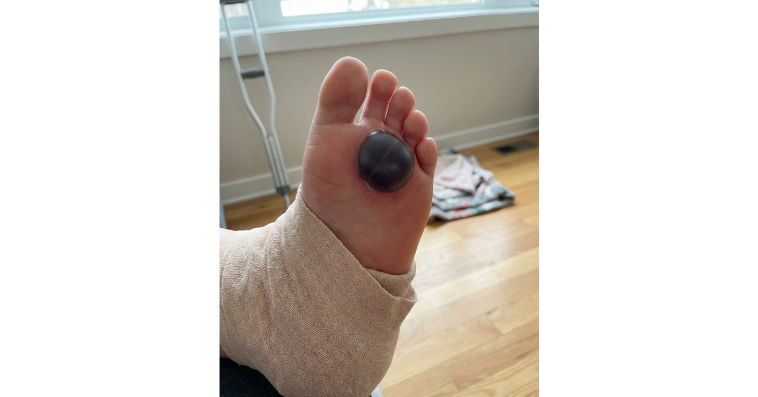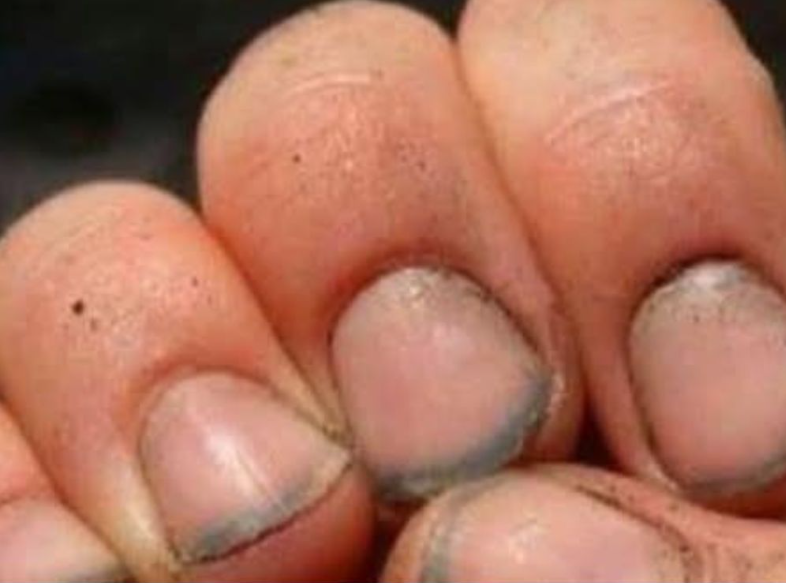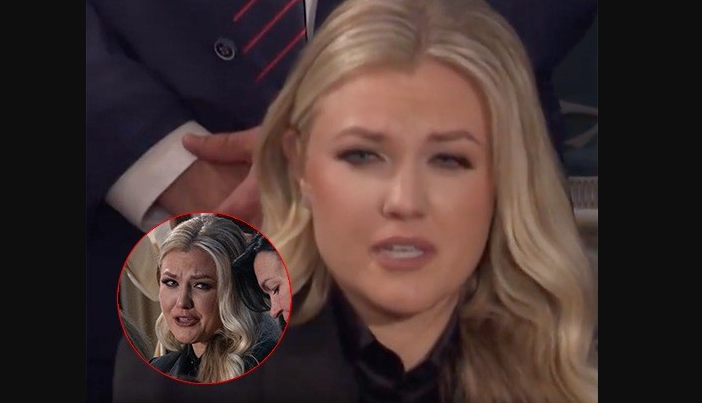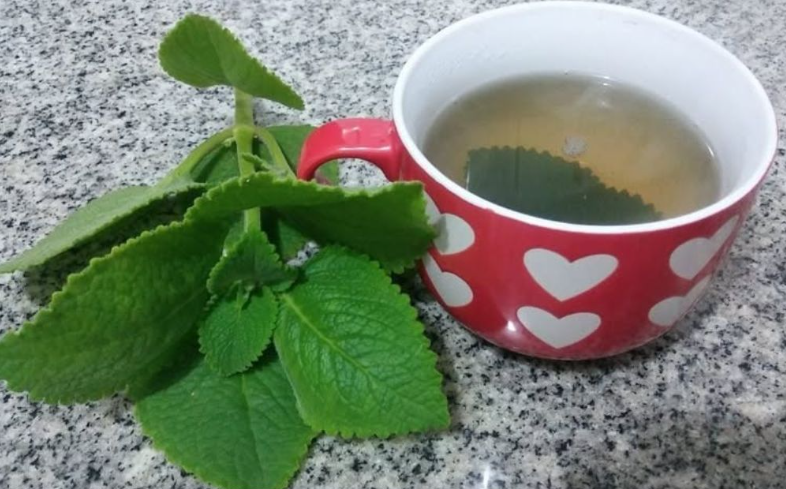I stirred awake to a piercing, strange odor—sharp and acrid—and a peculiar emptiness near my throat that sent a chill through me. The reflection in the mirror revealed my fear. My hair—formerly long, rich brown, and meticulously tended—now appeared roughly sheared into uneven clumps. For an instant, I imagined an intrusion, perhaps a theft, occurring beside me as I rested.
Then I noticed them. The crafting shears—my mother’s, the pair she employed for trimming discarded bills—placed neatly upon my bureau. Beside them lay an adhesive memo that struck like a blow: You’ll still appear presentable. Concentrate on your remarks for Hannah’s special occasion.
I remained rooted in place, gazing at the scattered locks upon my bedding as fragments of my essence that had not endured the darkness. That ceremony represented my opportunity—the initial occasion in ages where I would address an assembly that seldom regarded me. I had selected that deep blue satin gown using funds from my diligent efforts. No approval sought. No doubts entertained. Solely me, emerging with poise.
Yet I resembled someone who had forfeited a wager. Upon entering the kitchen, my father scarcely lifted his eyes from his breakfast bowl. “Ah, excellent. You’re awake,” he remarked. “Shorter locks enhance your features without drawing undue focus. The focus remains elsewhere.” My mother savored her brew and contributed, “This event centers on Hannah. Allow her to radiate. Allow her to radiate.”
They behaved as though my attendance posed a disruption—as if arriving in an elegant attire somehow eclipsed the entire gathering. As though my mere being commanded the gaze. Allow me to clarify: I served as the child they oversaw, not the one they celebrated.
Hannah received the bespoke attire, the string instrument instruction, the undivided regard. I received the reused items and the “appreciate what you have” admonitions. Upon her completion of studies, she traveled to Paris. Upon mine, guidance urged a part-time role to fund higher education—and I followed through. I departed home at 19, balanced dual employments, and accepted the ceremony invitation in hopes this might emerge as one of those uncommon instances where relatives avoided rivalry. Yet they administered a sedative via a calming infusion, then altered my hair during my slumber.
My own guardians. My companion, Becca, arrived in haste after my quivering call. She inhaled sharply upon viewing me. They arranged this deliberately? I affirmed. Becca paused briefly. Then she retrieved her device. Alright, we skip the ceremony in this state. We pursue an elevated path. Initially, I sought separation rather than retaliation. Yet as Becca assisted in capturing an audio note, one I never envisioned sharing. It altered our course.
It consisted of a recording from weeks prior, captured routinely. I utilized my device to document subtle instances for my counselor. Mother declaring me an interruption after I shared an image from a colleague’s engagement event.
Father asserting that attractive women disrupt ceremonies through envy. Initially, I viewed them as impolite remarks. Yet reviewing them alongside Becca unveiled a deeper sequence. And then Becca observed, “Consider this: a method exists to compel their attention.” That evening, I resolved. I would attend the ceremony, yet in a manner beyond their anticipation.
I would forgo the gown they dismissed. I would omit the phrases they prepared for Hannah’s tribute. I would dismantle their outline. And that marked the onset. Sleep eluded me that night. Becca refined my altered tresses into a smooth, daring crop. “You resemble a figure poised to unveil kin secrets,” she murmured while securing the final piece.
By dawn, a strategy formed. I reached the ceremony location ahead of the bustle, a vast vineyard property. Naturally, they chose a scenic backdrop. Hannah’s ideal union drew from parental reserves, mother’s practiced grins, and father’s steadfast admiration for the cherished offspring. I occupied a peripheral role, yet not on this day.
I had practiced the assigned address, a sentimental piece on kinship and enduring ties. Instead, during the preparatory meal amid the congenial atmosphere, I approached the podium and declared, “Greetings, all. I recognize my status as the less favored child. That fact holds no mystery, yet today I share a distinct message.”
The atmosphere thickened. Mother’s expression faltered. I intend to discuss the realities beyond polished images. When declarations of affection accompany efforts to diminish your presence to prevent eclipsing another. When infusions ensure rest amid interference. When guardians regard your being as a challenge to the offspring they truly cherish. Murmurs arose.
One relative set down his utensil. My father rose and stated, “Sufficient.” Yet I persisted.
You no longer dictate my form to align with your narrative. You no longer diminish me, conceal me, or pretend occurrences fade.
I produced my device and activated playback. Mother’s tone echoed—crisp, detached: She believes she’ll eclipse Hannah. We’ll address it. Followed by father’s amusement.
We’ll adjust it during her repose. Individuals like her require cues. The quietude overwhelmed. Observers lowered implements, attendees exchanged dismayed glances. I concluded, “You instilled embarrassment. Now I impart repercussions.” Attendants guided me from the premises as my guardians raised voices.
My sibling wept. Not over my account, but concern for her images. Yet the episode continued. The footage spread rapidly online within a day. Becca posted the complete segment, titled, “This reflects the transformation of kinship into weaponry.” It surged. Countless views. Public figures shared it. Short-form creators mimicked it.
Messages arrived from acquaintances worldwide: “Gratitude for voicing what eluded me.” Yet the highlight arrived a week onward: correspondence from a bridal publication curator. She noted, “Your narrative embodies courage, and we seek to highlight it. Would a session and piece titled the overlooked sibling who claimed the stage appeal?” I agreed.
The session embodied all my guardians withheld—graceful, assertive, and wholly, without remorse, authentic to me. Professionals applied cosmetics, arranged my recent style, and attired me in garments that gleamed beyond any reproach they imposed. That instance signaled a fresh phase in my journey.
Three months elapsed. My relatives maintained quietude—no regrets expressed, no clarifications offered. By then, words proved unnecessary. The public had observed. My footage ignited broad discourse. Programs analyzed it. Articles examined each phrase—explorations of appearance advantages, kin competition, relational strain masked as custom.
Abruptly, I emerged as emblem for every overlooked female, muted, or reduced to favor a more “suitable” relative. Yet I pursued liberation. I aimed to ensure no other endured diminishment as I had.
Then arrived unforeseen correspondence from Cynthia Ray, principal of a premium apparel enterprise famed for reshaping images via candid expression. Her daughter had navigated a parallel path. Cynthia extended beyond a posing role—she proposed oversight of a fresh initiative named You Can’t Cut Power.
From imaging sessions to promotional circuits, presentations to coverage, I converted their harms into momentum for greater endeavors. Concurrently, at origin, repercussions aligned with expectations. Their refined community withdrew. Ceremony participants who formerly applauded Hannah now averted eyes in market passages. Even the officiant shared with followers that perhaps she merited absolution— not acclaim.
And Greg—Hannah’s recent spouse—the one silent through the alteration episode? He departed mere weeks into union. Evidently, he uncovered archived digital remarks—unseen social annotations Hannah authored, targeting me. She participated fully. She fixated. And now solitude enveloped her.
I desired to claim solace in that—yet truthfully, detachment prevailed. I focused on constructing elements beyond their reach.
And then materialized the ultimate return: Cynthia contacted anew. “We establish our initial innovation hub in your locale,” she conveyed. “Interested in leading it?”
I chuckled. “Do you mean it?”
She grinned. “Envision the familiar setting—yet now you command admiration.”
Thus I consented.
We unveiled a modern, light-filled innovation space centrally positioned—along the precise avenue my guardians once led me during Hannah’s music sessions. This time, a prominent inscription spanned the pane: “Power Cannot Be Cut.”
During our debut gathering, regional reporters attended. Advocates and resilient individuals gathered. A few former academy peers—the identical group who once teased my reserve—entered inquiring on placements.
And then unfolded the unforeseen: My guardians entered. Unannounced, unbidden. Mother donned expansive shades as armor. Father appeared aged—remorse, revelation, or the burden of relinquished dominance, unclear. They failed to identify the individual commanding the assembly: composed, commanding, and prepared for lenses.
They attempted normalcy. “We support your achievements,” mother whispered. I smiled. “Amusing. Your support waned post-orthodontics.” Father emitted a light laugh, seeking ease. “Errors occur. Kinships mend, correct?”
I advanced to the entry station. “Care for a response form? We value input earnestly.” They hesitated.
“A assembly of esteemed individuals awaits my address,” I appended. Then I pivoted, abandoning them immobile—displaced within the domain they once deemed unfit for me.
Amplification proved unnecessary. Degradation lacked purpose. The structure, the assembly, the triumphs—they articulated beyond any slight.
Yet prior to their exit through the transparent portals, I summoned: “Incidentally—should you attempt diminishing one child to uplift another henceforth, recall: blades wear. Certain women hone.”
They returned no more. And I required no recurrence. For I had grasped the essence: they shaped neither my allure. They shaped neither my strength. And they never possessed authority over my value—not via blades, not via quietude, not ever anew.






